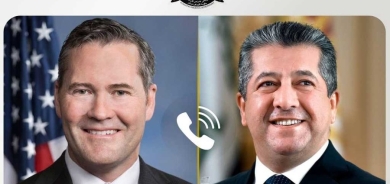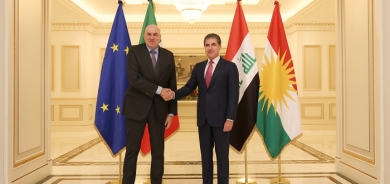Turkish Opposition Leader Sparks Controversy by Kissing Hand of Kurdish Singer; Nationalists Express Outrage

In a surprising turn of events, Ozgur Ozel, the leader of Turkey's main opposition party, has become the focal point of controversy after kissing the hand of Kurdish opera singer Pervin Chakar during a concert in Istanbul earlier this week. Despite facing backlash from Turkish nationalists, Ozel, on Thursday, stood by his gesture, asserting that he does not regret his actions.
The incident unfolded during a concert in Istanbul, where Kurdish-Turkish singer Pervin Chakar, based in Germany, delivered a vibrant performance. The event, attended by figures from the pro-Kurdish Peoples’ Equality and Democracy Party (HEDEP) and the main opposition Republican People's Party (CHP), saw a surprising moment when CHP Leader Ozel approached the stage, bowing down, and kissing Chakar’s right hand.
The aftermath of this gesture saw a swift and intense reaction from Turkish nationalists on social media platforms. Ozel, now at the helm of Turkey's oldest political party, faced criticism from pro-government media outlets and far-right politicians, including Devlet Bahceli, leader of the Nationalist Movement Party (MHP), an ally of President Recep Tayyip Erdogan.
Bahceli, in a speech at the parliament on Tuesday, condemned Ozel's action as "shameful," emphasizing that kissing the hand of someone "who talks about Kurdistan and sees Turkey as an invader" is unacceptable. He suggested that if Ozel desires to show such a gesture, there are numerous women in the parliament he could have chosen instead.
The incident has brought to the forefront the complex dynamics of Turkish politics, where issues related to Kurdish identity and nationalism often trigger heated debates. Ozel's unapologetic stance indicates a willingness to challenge the status quo, even at the risk of facing criticism from nationalist quarters.
As the controversy continues to unfold, it raises questions about the boundaries of political gestures in a country where ethnic and cultural sensitivities are deeply intertwined with political discourse. The incident underscores the challenges faced by political leaders attempting to navigate the delicate balance between diverse identities within the Turkish political landscape.













